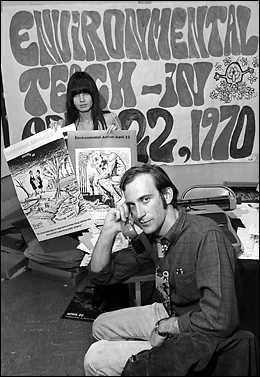Since its founding in 1865, The Nation has been a home for writers instigating, reporting on and arguing about struggles for social and economic justice. We have held fast to our “Nation Ideals”— from racial justice to feminism, from a fair economy to civil liberties, from environmental sustainability to peace and disarmament—throughout our 150-year history. During our anniversary year, TheNation.com will highlight one Nation Ideal every month or two. We’ll celebrate by asking prominent contemporary Nation voices to read and respond to important pieces from our archive. Below, Zoë Carpenter reflects on two 1970 Nation articles on the emergence of the environmental movement. Learn more about our 150th anniversary events and special contenthere.
* * *
Louisiana is not a place that usually inspires hope for the environment. Nearly a century of oil and gas activity has cut the state’s swamps and bayous into vanishing ribbons. Hundreds of millions of gallons of oil have been spilled into the Gulf of Mexico. Underground caverns hollowed out by petrochemical companies are collapsing and creating sinkholes, some swallowing entire communities. Industry has fouled state politics, too, such that elected leaders reward corporations with $1.8 billion a year in subsidies and tax breaks, while starving healthcare, education, and other public services.
Several months ago I had a surprising conversation with a Louisianan named Mike Schaff. He identifies himself as a Tea Party Republican, and won’t call himself an environmentalist, but he’s angry enough about what petrochemical companies have done to the land he loves that he joined a coalition called the Green Army, which is mounting localized challenges to the dominance of the industry in the state. “Our state is kind of looking the other way, saying that’s the cost of doing business in Louisiana,” he told me. “We say ‘bullshit’ to that. It doesn’t need to happen.”

